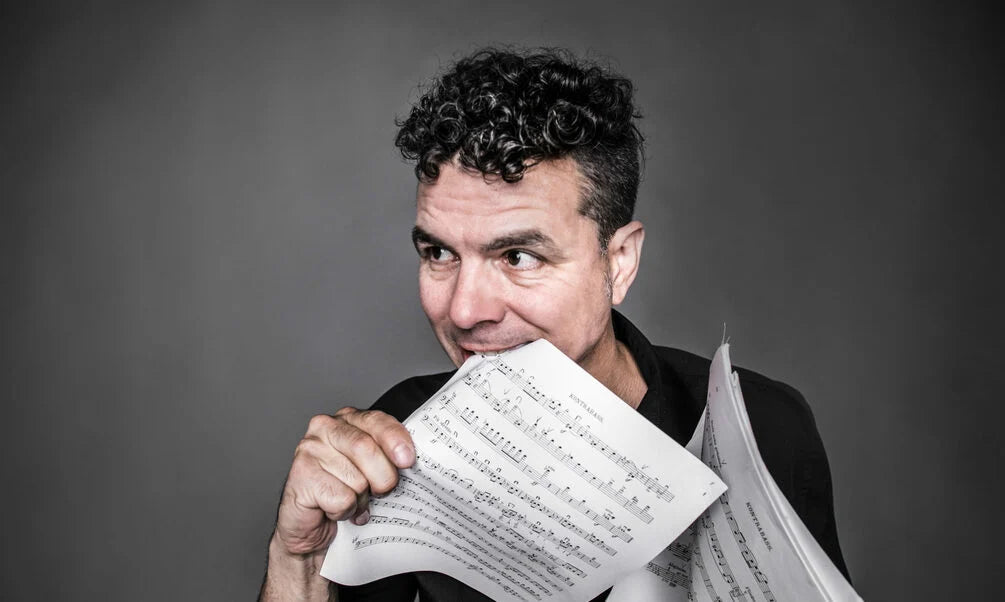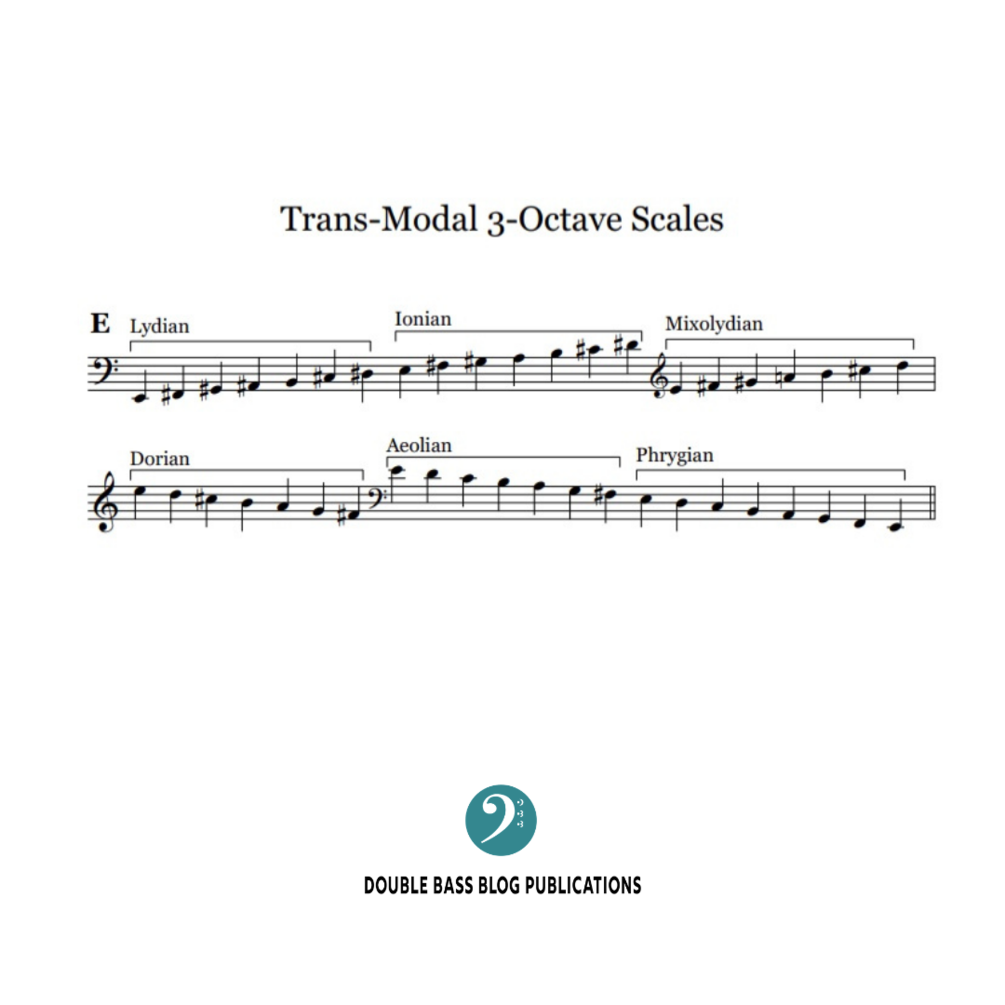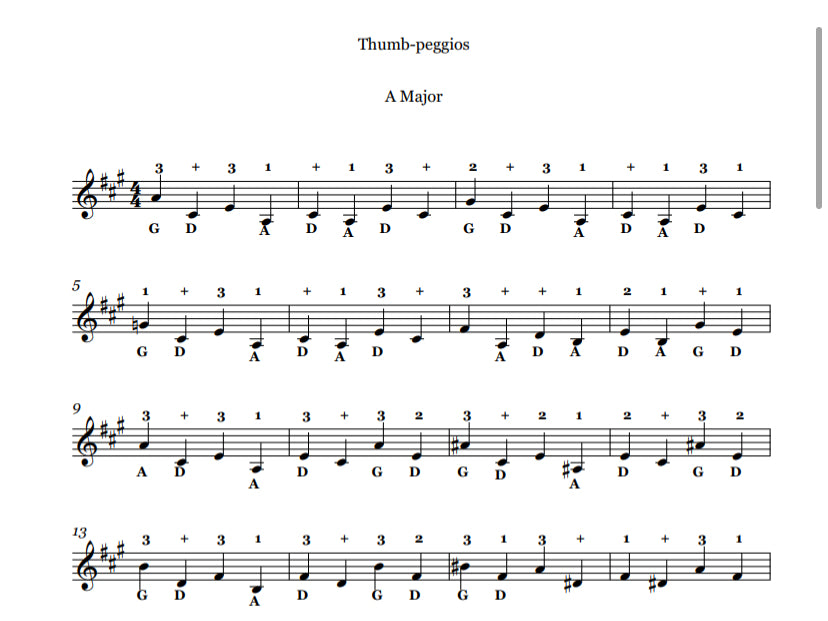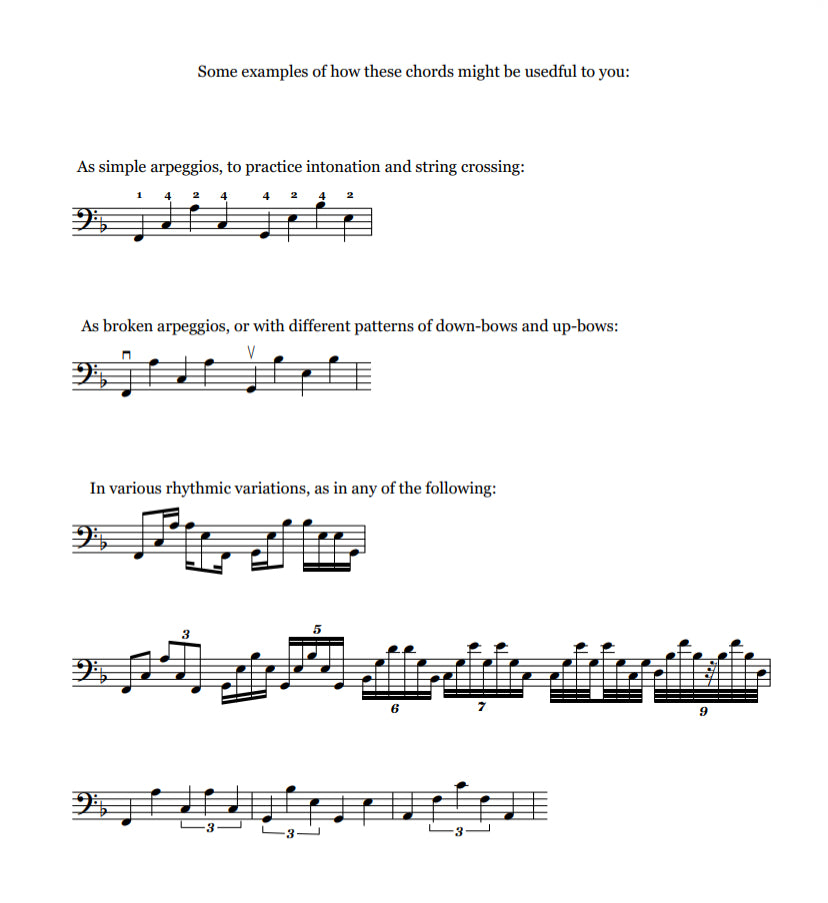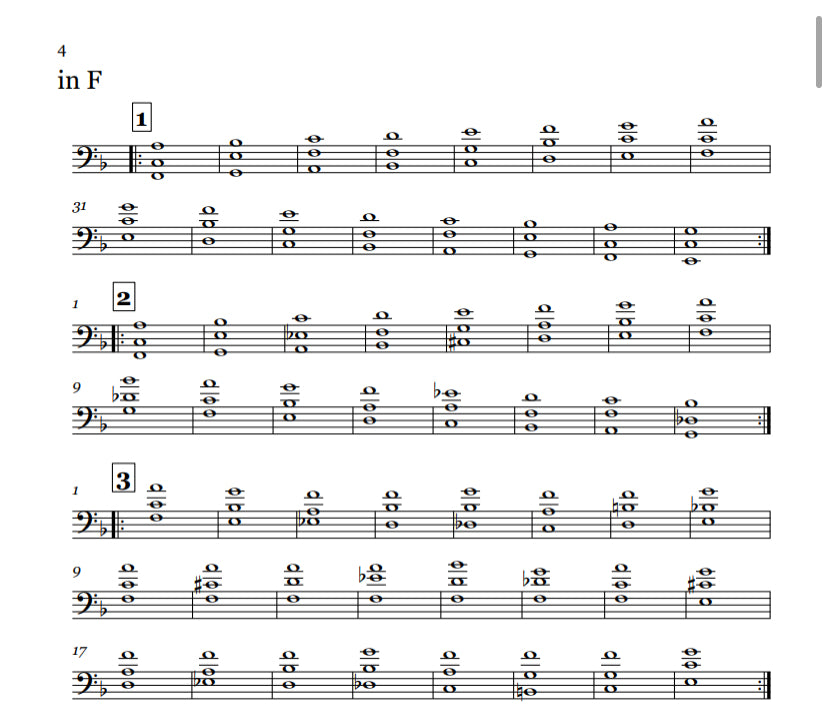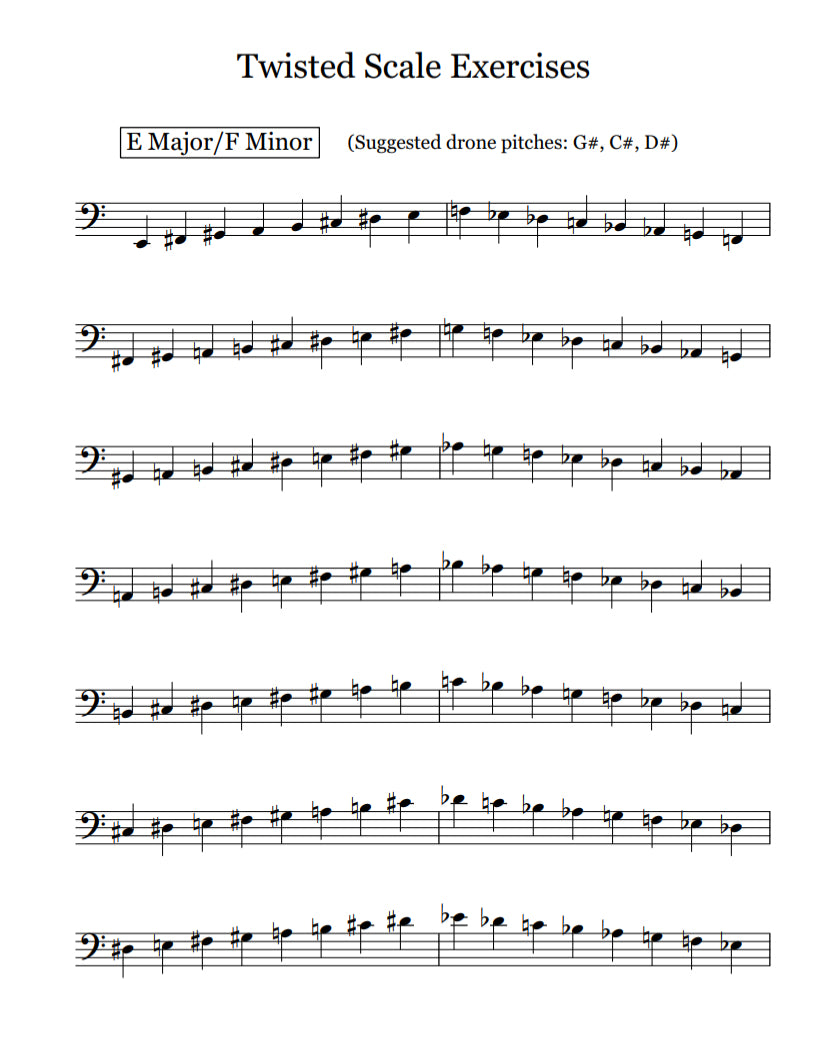Michael Kurth
Michael Kurth: Let's Get Ready to Grumble: Double Bass Technique Exercises
Michael Kurth: Let's Get Ready to Grumble: Double Bass Technique Exercises
Couldn't load pickup availability
Table of Contents
1. Modal Pivot Exercises
13 pages of modal exercises built around the "pivot" technique.
2. Several Pleasant Harmonic Progressions
Three-note and Four-note chords in all major keys Useful for Double-Bassists in the Practice of Arpeggiation, the Use of Bowing Variations, the Crossing of Strings, Shifting, and the Development of Reliable Intonation, Either By Oneself, or Perhaps in an Ensemble of Other Like-Minded Double-Bassists. Also Rather Useful for Mastering the Reading of Each of the Various Clefs Employed (but Not Necessarily Enjoyed) by Double-Bassists: the Bass Clef, the Treble Clef, and the Dreaded yet Sadly Misunderstood Tenor Clef.
3. Transmodal 3-Octave Scales
With apologies to the mysterious Locrian Mode for its unfortunate exclusion; which exclusion might be forgiven considering the mode's admittedly chequered history involving demons and exorcisms and inquisitions &c.; but which mode might be re-inserted at the user's own prayerful discretion, though such inclusion must inevitably occur at the expense of one or another (less demonic) Modes, given the three-octave format here presented, yet hopefully not at the peril of the user's immortal soul.
Users unfamiliar with the Locrian Mode's aforementioned history are encouraged to pursue further research into the fascinating story, perhaps in a book at a library, or perhaps while using a "Computer" or "Smart Telephone" device.
4. Thumb-peggios
Nine studies in various keys to assist the double-bassist in developing the use of the thumb within the context of the arpeggio, toward the noble aims of the preparation and performance of the 'Cello Suites of J. S. Bach.
5. Twisted Scales, Vol. 1
Volume 1 of the mind-numbing, finger-twisting, ear-bending scale exercises to help you develop secure intonation in awkward situations, and also, very probably, annoy the crap out of your roommates.
About Michael Kurth
Kurth has been a member of the Atlanta Symphony bass section since 1994.
Michael Kurth thinks most artist biographies are pretentious and boring, and feels a welcome sense of liberation, not to mention mischief, when writing about himself in the third person. He further believes that all artist biographies should include whether the artist prefers cats or dogs, or is ambivalent. He allows that there is room for ambivalence on this issue.
Kurth prefers dogs.
He also enjoys shrimp burritos, dive bars, road trips, thrift stores, found art, shiny pants, folk plumbing, collecting odd musical instruments, neologism, and bourbon.
Kurth was born in 1971 in Virginia and grew up near Baltimore. He started playing the bass in fourth grade, went to public schools, and got his Bachelor’s Degree at Peabody Conservatory, where he studied bass with Harold Robinson. He also studied cello and viola at Peabody, and did okay at cello, but his ham-fisted viola playing caused his roommate Rick to forbid him from ever practicing it in their dorm room.
He once stole one of those convex security mirrors, just to savor the irony, but he feels a lingering sense of guilt, even though it was laying in a pile of stuff that was probably destined for the dumpster anyway. But still.
Kurth has been a member of the Atlanta Symphony bass section since 1994.
The ASO has commissioned and premiered many of his orchestral and choral works. A recording on the ASO Media label is scheduled for commercial release on CD and digital platforms in February 2019, including Everything Lasts Forever, A Thousand Words, May Cause Dizziness, and Miserere featuring Grammy Award-winning mezzo-soprano Kelley O’Connor.
He frequently collaborates with Atlanta poet Jesse Breite on vocal works, including Miserere, Tenebrae, and Magnificat.
He was named “Best New Composer” by Atlanta Magazine in 2017.
He has been awarded Artist-in-Residence fellowships from the Hermitage and Serenbe.
Many Atlanta-area artists have commissioned and performed his works, including the Atlanta Symphony Orchestra Chorus and Chamber Chorus, the Atlanta Chamber Players, the Atlanta Young Singers, the Gwinnett Young Singers, the Morehouse College Glee Club, the Peachtree String Quartet, the Franklin Pond String Quartet, the Atlanta Contemporary Ensemble, Concert Artist Guild Award-winning violist Jennifer Stumm, the Georgia Sinfonia, the Atlanta Community Symphony Orchestra, the DeKalb Symphony, the Georgia State University Wind Ensemble, and movement artists gloATL.
He teaches bass at Emory University.
